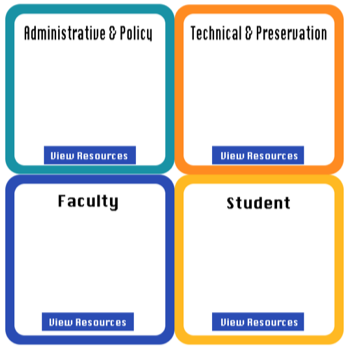I’m glad that there are several folks expressing an interest in working together on their DoOO implementations! What should I be doing next to keep things moving?
Can we presume something akin to an task bank? I’ve started to scratch out a preliminary organization of tasks that might be associated with an institution’s DoOO work. Most of these have already come up here at Muhlenberg, and several have been completed. I am likely excluding some important and interesting stuff that falls outside my immediate experience, so apologies in advance if I’ve done that.
As for where it might reside, I think @timmmmyboy is totally right that Reclaim Hosting is the natural home for any repository. But I’m also willing to pull my weight if there could be some way to share the effort?
Here is my very rough pass for how things might be organized. I offer this mostly as a way to keep things moving, and I could easily be persuaded to organize differently.

###Administrative & Policy Related###
- Proposal Development, Strategies for Administrative Approval (I saw that this was requested in another thread today)
- Budget Development
- Privacy & FERPA
- Terms & Conditions; Related Legal Stuff
- Branding, Publicity Plans, & Promotion
###Technical & Preservation###
####Technical/Systems####
- Authentication / Sing Sign On
- Security Configurations
- Integration of DoOO into Existing Technical Support Structures
####Digital Preservation####
- Legacy Systems Auditing
- Digital Preservation of Existing (e.g., migrated)
- Digital Preservation Planning
###Faculty/Staff Considerations###
- Running a Faculty Pilot
- Faculty Learning Communities
- Digital Pedagogical Faculty Development
- Support of Faculty Research through DoOO
- Faculty-centric Documentation
- Faculty Technical Support
###DoOO & the Student###
- Developing Peer Support
- Student-centric Documentation
- Support of Student Research through DoOO
- Student Technical Support
- Student Offboarding
One real quick observation here: I deliberately grouped audits or inventories of existing stuff, migration of that stuff if necessary, and preservation of that stuff. For me, it makes sense to consider how to preserve/archive (from an institutional perspective) existing WordPress MultiSite blogs, for instance, while we’re also considering how to move them to new infrastructures. We’re going through this here at Muhlenberg, but I can imagine this is a recurring situation. It sounds like this was the case at OU, after speaking to @acroom, for example.
I have mentioned on another thread here that I can remember the tilde sites I created as a student. I’d wager that none of that work was ever preserved in the University archives. I think that’s a shame. I’d love to see this community begin to get its arms around how we might ensure that Domains work will be available to scholars of the future. Perhaps taking this on at the point of backup and migration from existing platforms to DoOO will provide a test bed for archival best practices going forward?
###To Meet Online or Not To Meet Online###
A second and perhaps less obvious aspect of a cohort can include some kind of regular or semi-regular online meeting. I seem to recall an ‘old’ thread (community discussion prior to discourse) that talks about office hours, and how they weren’t well attended. I totally understand how this might not be broadly appealing or particularly useful for those with the most history or experience.
I’d really like to try and see if online meetings could work. I care about this because, as I stated previously, I’d appreciate some manner by which folks can “think aloud” about the possibilities DoOO affords digital teaching and learning. The opportunity for the exchange of ideas seems quite powerful to me. I also recognize that there are other closely related online and face-to-face communities that intersect or perhaps closely parallel what may be an online cohort around DoOO implementation. An alternative might be to seek dedicated DoOO sessions during other related community online meetings? I’d appreciate learning others’ opinions. Once again, I’m happy to do my part. My institution has access to a couple different online conference tools that could work. Same with the scheduling – I volunteer to help with logistics and scheduling if that is useful.
Thanks!
